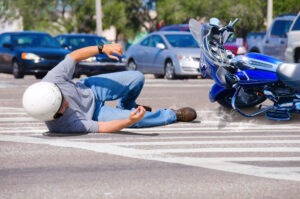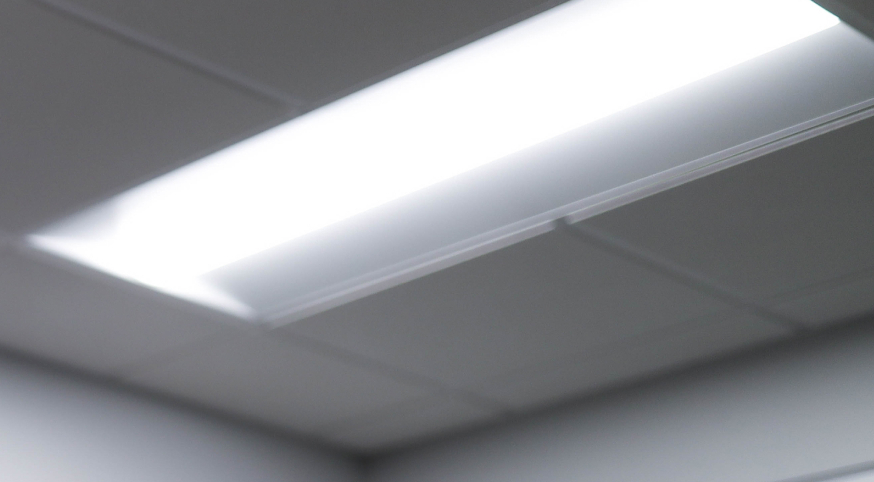
If you ride a motorcycle or have shared the road with motorcycles before, you might be familiar with the concept of lane splitting. It occurs when a motorcycle rider or cyclist rides between lanes, usually to save time in congested traffic. You may have also wondered if lane splitting is legal in Indiana.
The answer is “no.” Lane splitting is considered a dangerous practice that can lead to accidents. That said, negligent riders break the law every day, resulting in collisions, painful injuries, and financial losses. If you’ve been involved in a lane-splitting accident, an Indiana car accident lawyer from Vaughan & Vaughan can help you seek compensation.
Indiana Law Makes Lane Splitting Illegal
Although many motorists wish lane splitting were legal in Indiana, as it can save them a great deal of time in traffic, the law prohibits it. According to Ind. Code § 9-21-10-6, motorists cannot deprive other vehicles of full use of a traffic lane. Since lane splitting encroaches on the lane of other drivers, this law makes it illegal.
When motorcycle and bicycle riders split lanes, they put themselves and others at risk. Lane splitting increases the likelihood of a collision and serious injuries. Those who choose to lane split can be met with fines, criminal action, and civil lawsuits. If you’ve been involved in a crash caused by lane splitting, you have a right to pursue damages by filing a claim.
Your Case Will Get
The Attention It Deserves

Why Lane Splitting Can Cause Auto Accidents
Indiana made lane splitting illegal because it poses a significant danger to all drivers on the road. There are many reasons why lane splitting, also known as lane filtering, can cause auto accidents, including the following:
- Limited reaction time: When a motorcycle moves between closely spaced vehicles, there’s less time for all motorists involved to react to sudden changes. This increases the likelihood of an accident and puts all parties in danger.
- Reduced visibility: Motorists might not see a lane-filtering motorcyclist approaching in their side mirrors or in their blind spots and may hit them as a result.
- Narrow spaces: The gap between cars might not always be wide enough for a lane splitter to make a safe passage, leading to potential collisions.
- Distracted drivers: A driver who is not paying full attention might make a sudden move without noticing a motorcyclist’s lane splitting and cause an accident.
- Uneven road surfaces: The middle of a lane can sometimes have debris, oil, or uneven pavement, which can make it hazardous for motorcyclists.
- High-speed differential: If a motorcyclist is moving significantly faster than the flow of traffic while lane splitting, the speed difference can exacerbate the consequences of any potential collision.
- Rider inexperience: Inexperienced motorcyclists might not have the skills to navigate the tight spaces between cars safely, increasing the chances that they’ll cause a collision.
- Car doors opening: If a motorcyclist is lane splitting through a traffic jam, a driver or passenger might open their car door without checking, leading to an open-door accident and serious injuries.
- Aggressive driving: Some drivers may react to lane splitting angrily and could act aggressively by closing gaps deliberately or making other aggressive maneuvers that may lead to a crash.
As you can see, there are many ways that lane splitting can cause an accident. Although lane splitting is illegal in Indiana, it still occurs on a regular basis. If you’ve been involved in a collision caused by lane filtering, an attorney can help you get the compensation you need to cover your medical bills, repair your vehicle, and replace other losses.
How an Indiana Attorney Can Help You Recover from a Lane Splitting Accident
If you’ve been involved in a lane filtering accident caused by one of the factors mentioned above, you’ll need an experienced attorney to help you navigate the claims process. Here’s what a skilled legal advocate can do to make your insurance claim or civil suit as successful as possible:
- Investigate the accident
- Analyze photos and footage of the incident
- Obtain testimony from eye-witnesses and accident reconstructionist
- Use evidence to build a strong insurance claim
- Negotiate with insurers to reach a fair settlement offer
- Take your case to trial if insurers don’t take your claim seriously
- Meet important filing deadlines and requirements
- Keep you updated on their progress throughout your case
Fight for Your Compensation
Every action your lawyer takes will be geared toward maximizing the compensation you receive from your claim or civil suit. If your lawyer wins your case, you could receive a number of helpful compensatory damages, including the following:
- Current and future medical expenses
- Cost of emergency medical treatment, physical therapy, and prescriptions
- Vehicle repair costs
- Lost wages
- Reduced earning ability
- Pain and suffering
- Emotional distress
- Loss of enjoyment of life
These damages can help you cover accident-related losses and give you the financial support you need to rebuild your life after a crash. While these damages can change your life after a lane-splitting accident, you’ll need a dedicated lawyer to help you get them.
Make sure to reach out to an attorney ASAP to give them the time they need to abide by the statute of limitations for car accidents.


Schedule a Free Consultation With a Trusted Indiana Car Accident Lawyer
Seeking compensation after a collision can be incredibly difficult, especially if you’re unfamiliar with the claims process and are dealing with debilitating injuries. To get the legal assistance you need to make your claim successful, consider working with a highly experienced lawyer from Vaughan & Vaughan.
We’ve helped injury victims get the case results they deserve for over 100 years. We’re confident that we have what it takes to help you recover financially and physically after a crash. Contact us today to schedule a free consultation with a knowledgeable lawyer. They’ll explain why lane splitting is illegal in Indiana and determine if you have grounds for a claim.




